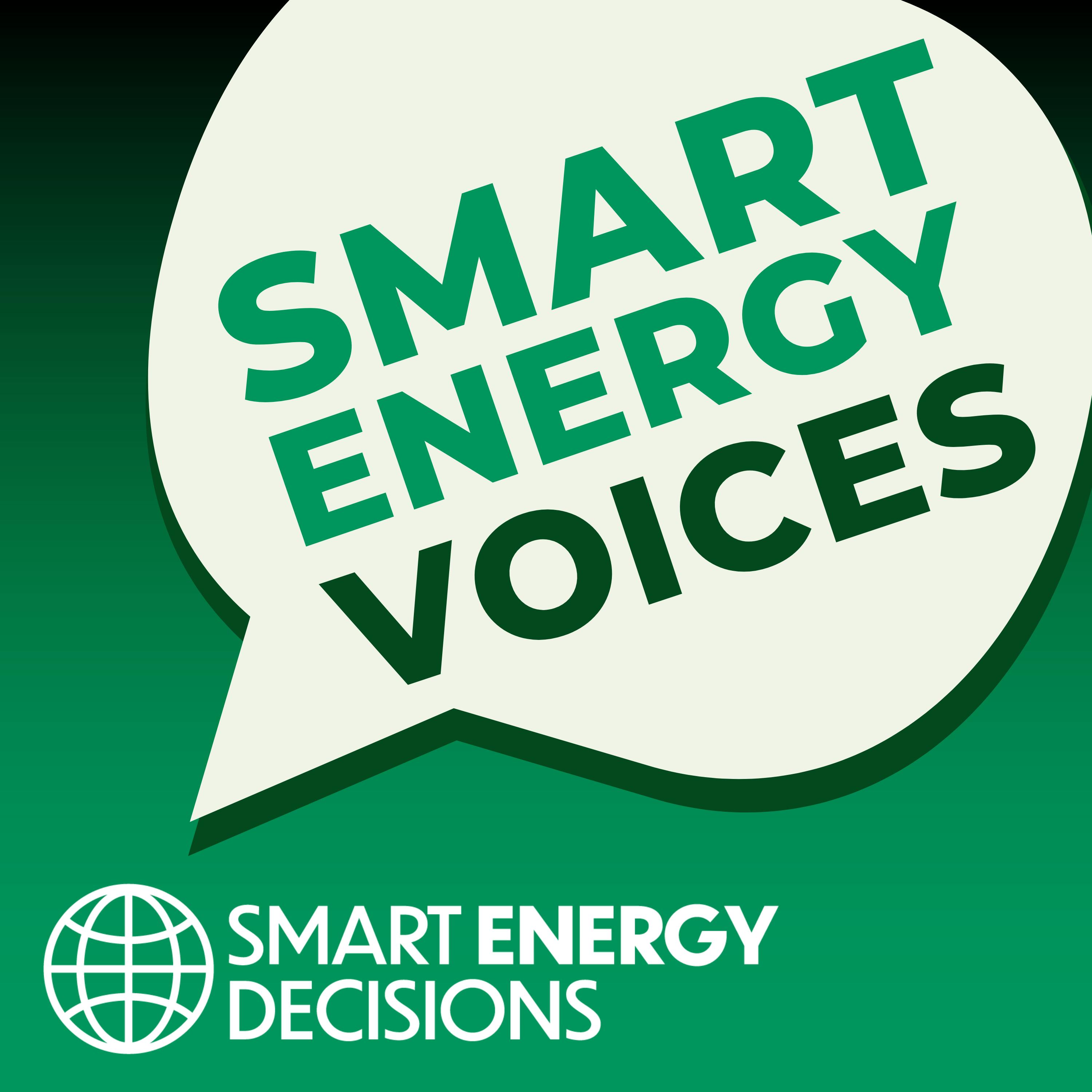Bank of America’s Approach to Net Zero, with Beth Wytiaz Ep #73
Description
In this episode of Smart Energy Voices, host John Failla shares the opening keynote presentation from the inaugural Net Zero Forum, featuring Beth Wytiaz, Net Zero Strategy Executive for Bank of America. Beth is responsible for developing and delivering the financial institution’s environmental strategy to reach net zero before 2050. In this talk, she shares Bank of America’s approach to net-zero framework and how the organization is building a robust strategy and transition plan that covers operations, supply chain, and financing activities.
You will want to hear this episode if you are interested in... Approach to zero framework [02:39] Consistency across the financial sector [05:02] Targets for 2030 [10:08] Choosing targets [15:05] Reporting and disclosing [18:27] Net-Zero commitments In early 2021, Bank of America committed to net zero across operations, financing activities, and its supply chain. In April 2022, it rolled out its “Approach to Zero” framework. Bank of America assists clients by creating new products and services to support client investments in climate solutions. The corporation is focused on engagement with policymakers and driving universal standards within the financial sector.
Bank of America is committed to bringing a variety of data points and transforming those into decision-useful information or metrics. While continuing to build its net-zero transition strategy, Bank of America sets milestone targets that align with the latest climate science. The organization is committed to disclosing its progress annually.
Sustainable development goals In addition to its net-zero target, Bank of America has a $1.5 trillion target to mobilize capital towards the UN Sustainable Development Goals, with $1 trillion specific to the environment. These two goals are supplemental to each other. When it comes to products and services, the corporation is developing a variety of innovative climate solutions for its clients. That includes sustainable aviation, fuel, renewables, carbon capture, and hydrogen.
Thousands of bankers interact with clients daily, so educating bankers is vital to Bank of America’s success in reaching net-zero. To aid in that education, the organization has developed an ESG college internally, where it continues to expand the education for bankers.
The Partnership for Carbon Accounting Financials In financial institutions, regulatory requirements and expectations are increasing, and Bank of America is working to drive consistency across the financial sector. The corporation has been calculating emissions for the last two decades and disclosing them. However, across all three scopes, there has yet to be a universally accepted methodology within the financial sector to calculate the emissions associated with financing activities. Attempts had been made over the years, but nothing fully came together until 2020, when the Partnership for Carbon Accounting Financials gained traction.
Now, over 300 financial institutions have signed up to use the standard. As a core member, Bank of America has been able to help develop and shape the methodologies along the way. There is now a methodology for business loans for project finance, listed equity and bonds, commercial real estate, consumer real estate, and consumer auto loans.
Resources & People Mentioned Sustainable Development Goals | United Nations Development Programme PCAF Net-Zero Banking Alliance – United Nations Environment Glasgow Financial Alliance for Net Zero Sustainable Markets Initiative Connect with Beth Wytiaz On LinkedIn BIO GOES HERE
Connect With Smart Energy Decisions https://smartenergydecisions.com Follow them on Facebook Follow them on Twitter Follow them on LinkedIn Subscribe to Smart Energy Voices
If you're interested in participating in the next Smart Energy Decision Event, visit smartenergydecisions.com or email our Event Operations Director, Lisa Carroll at [email protected]
More Episodes
In this episode of Smart Energy Voices, Brent Trenga, Director of Sustainability at Kingspan North America, shares the company’s ambitious Planet Passionate program and its progress over the first four years of this 10-year initiative. Brent dives into the challenges they faced and the innovative...
Published 11/22/24
Published 11/22/24
Welcome to the first episode of Plugged In: Exploring Energy. In this podcast miniseries, host Chuck Hanna from Constellation sits down with Benton Arnett from the Nuclear Energy Institute to discuss how nuclear power is transforming to meet today’s energy needs. They also explore emerging tech...
Published 11/08/24


